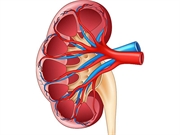
Taking vitamin D and fish oil supplements won’t prevent kidney disease in people with type 2 diabetes, a new study finds. Many diabetics use the supplements, hoping they will have a positive effect on their kidneys and heart, the researchers said. “We wanted this study to clarify whether these supplements have any real kidney benefit… read on >




























